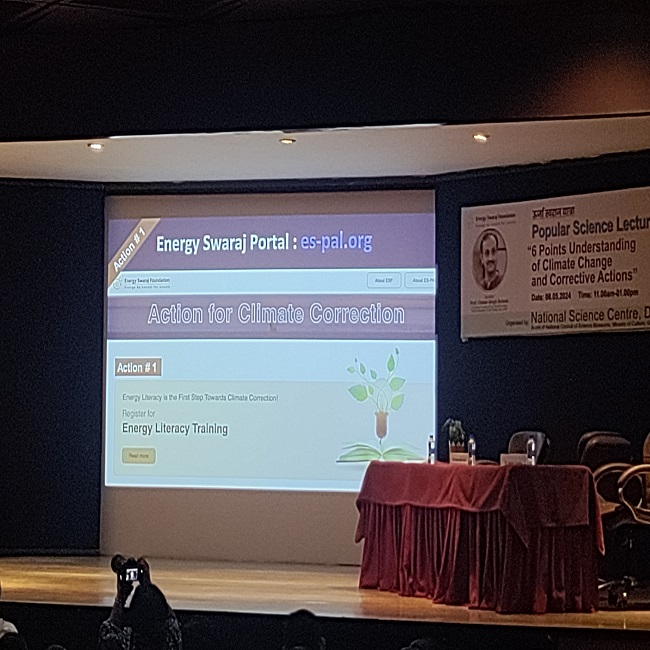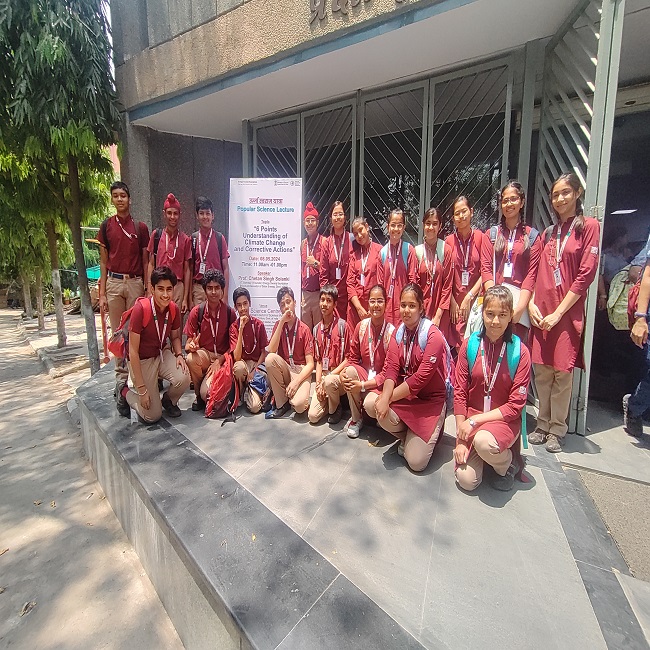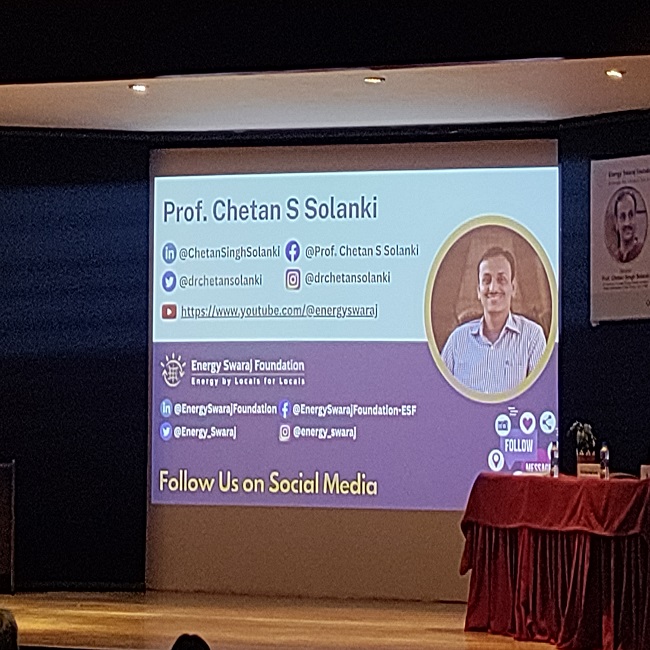Climate change workshop by an innovator
On 8th May 2024, the National Science Centre organised a popular science lecture by eminent innovator, Prof Chetan Singh Solanki, IIT Bombay, who is on an Energy Swaraj Yatra, to draw urgent attention to the issue of climate change. Prof Solanki also known as "Solar Man of India" conducted a lecture on the topic, “6 Points: Understanding of Climate Change and Corrective Actions”.
The objective of the talk was to bring teachers, students, and renowned scientists together on a common platform, allowing students to interact with the scientists and gain the latest information on effectively harnessing solar energy. Students from various schools and colleges were present to attend the lecture. Our School was privileged to attend the lecture, which proved to be a profoundly enlightening experience for the class IX students accompanied by their Physics teacher, Ms P. Yogeshwari.
Mr C.S. Solanki provided a unique and enlightening opportunity for the students to understand the current suffering of our planet. He told us how each one of us, whether knowingly or otherwise, is contributing to our own destruction by exploiting it. He brought the problem of climate change and increase in temperature to the limelight.
He discussed the following six questions through a PPT to provide information about the rise in global temperature and the corrective measures required.
1. What has changed?
2. Why did this change occur?
3. Who has changed it?
4. How to correct the change?
5. When to correct the change?
6. What can an individual do?
He concluded by acquainting us with the fact that the root cause of climate change is carbon emission. Carbon gas stays in the atmosphere for 300 years. Today 80-85% energy consumption is from fossil fuels. Sixteen lakh crore rupees are spent by India on fossil fuels. Currently, 50% carbon dioxide is excess in the atmosphere. Observing the amount of carbon we are producing, the plantation of trees will not be able to solve the problem on a large scale. The rate of carbon emission is about 1,079 metric tonnes per second.
In 2023, global temperature rose by 1.44 degrees celsius, making it the warmest year since 1880. It is imperative that we start limiting our carbon footprint inmediatel. Currently, the temperature difference is 1.5 degrees celsius, indicating that there is still hope to reverse the potential catastrophic events that the future may hold. However, if this difference reaches 2 degrees celsius, the changes will become irreversible and severe. According to the climate clock, we only have 5 years and 74 days left to take significant action.
The speaker also explained Solanki’s Fundamental Laws of Human Existence and emphasised the actions that we must take as responsible citizens to protect our planet.
Law 1.- Limit your consumption: In an ecosystem of finite resources there has to be finite consumption for the harmony of life.
Law 2. - Localise your production: In an ecosystem of finite resources, there has to be distributed production.
Action 1 - Energy Literacy Training: Awareness is the key to any change. By educating ourselves and others about energy consumption and conservation, we can make more informed decisions and take meaningful steps towards reducing our carbon footprint.
Action 2 - WAH (Wrinkles Ache Hai): Every Monday, conserve some amount of energy by not ironing your clothes. This small act of skipping ironing can collectively, save a significant amount of energy over time.
Action 3 - Prevent Energy Loss and Conserve Energy: Prevention and conservation of energy are crucial steps to saving our planet. By ensuring that we minimize energy waste and use energy efficiently, we contribute to a more sustainable future.
Action 4 - Ek Kamra Solar Ka (EKSK): Convert one of your rooms into a solar-powered room. By incorporating solar energy into our homes, we reduce our dependence on non-renewable energy sources and promote the use of clean, renewable energy.
The workshop was incredibly compelling. After attending the session, the audience felt a strong sense of responsibility towards our dear Mother Earth. While we felt guilty about how we have been mistreating our own planet, we also felt a burning desire for change that can avert the plight facing us. We took away many valuable learnings from the workshop.















